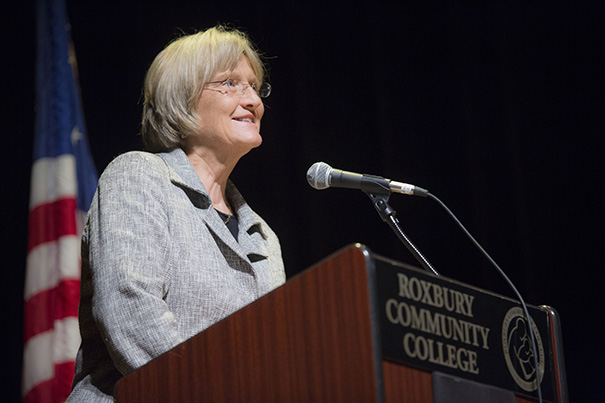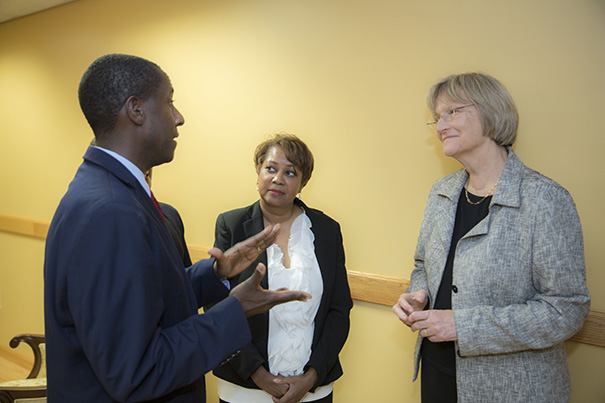
During a gathering of mayors from cities and towns across the nation, President Drew Faust argued that investment in education is the key to addressing inequality and creating opportunity.
Kris Snibbe/Harvard Staff Photographer
Education as a tool against inequality
Faust tells mayors’ panel that social and economic change starts with learning
Investment in education is the key to addressing inequality and creating opportunity, Harvard President Drew Faust argued Wednesday night at a gathering of mayors from cities and towns across the nation.
“Economic Growth For All,” a town hall hosted by the U.S. Conference of Mayors’ Community Development and Housing Committee, convened at Roxbury Community College to discuss how to connect people more effectively with the economic opportunities they and their families need to be financially independent.
“Any discussion about reducing inequality in this country, and creating economic growth that reaches everyone, has to begin with investing in education, from early learning all the way through higher education,” Faust said. “It just has to.”
Echoing concerns she has shared at events from Cambridge to Dallas, Faust explained the long-term financial benefits that students receive from a college education.

“Over a lifetime, students who graduate from college can expect to make about 60 percent more than those who do not, well over $1 million more,” she said. “College graduates are also more likely to own a home. They are healthier and less likely to smoke. Their children are more likely to go to college.”
But the role of colleges and universities extends beyond the education of individual students, she said. She urged the assembled mayors to “view the universities in their communities as assets, as infrastructure, and as allies.”
“How do we spread the wealth of this country more equitably among its citizens? How do we grow the economy in ways that lift more of us, not just a few of us? I really believe universities cannot only help you answer that question. I think they can be part of the answer,” she said.
The development and housing committee is chaired by Newton Mayor Setti Warren.
To read President Faust’s remarks in full, visit her website.




